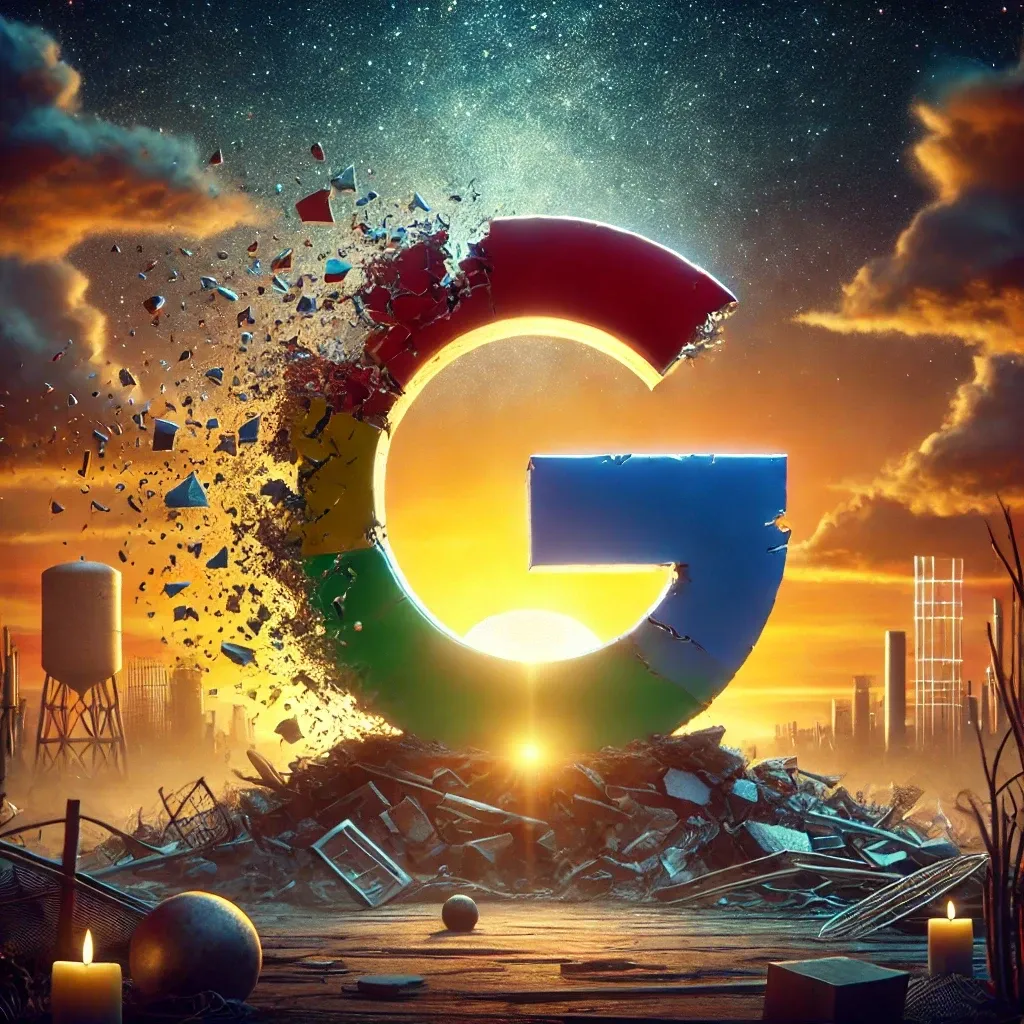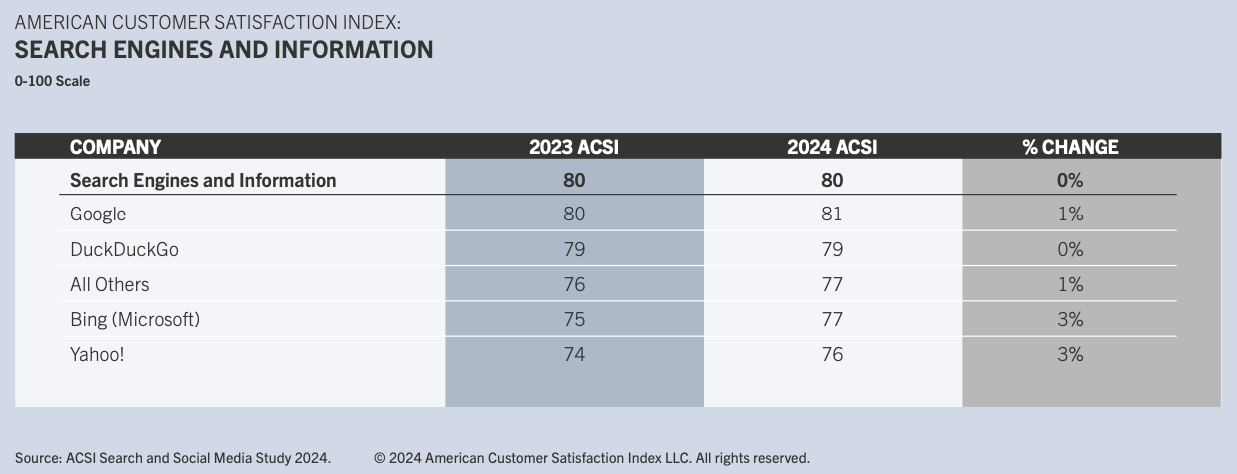Monopoly Remedy, AIOs Down Again, More Google Revelations

End of the Google Era?
After the court's finding that Google had illegally exercised monopoly power to maintain search dominance and "earn monopoly profits" from paid search, speculation immediately turned to remedies. Professor and former Biden economic advisor Tim Wu has several recommendations: force divestiture of Android and Chrome, force Google to "grant anyone free and open access to all of its A.I. technologies, as well as the vast troves of data on which those technologies are trained." Interestingly he doesn't believe killing the default search deals would do much other than "help Google" (by saving money). Kevin Indig argues for the end of default search deals but also suggests: compelling Google to share "click behavior [data] with the open market so everyone can train search engines on it," as well as divesting YouTube, Android and Chrome. However, like us, he believes killing the default search deals is likely while other remedies are uncertain. Meanwhile Axios proclaims "the end of the Google Era." That's very premature.

Our take:
- Killing default search will happen. But a stronger remedy is needed vs. simply ending the Apple deal, which saves Google money and doesn't change the competitive dynamics of the market.
- Google should be forced to share click data, divest Chrome and perhaps Android. It's unlikely the court will embrace Wu's AI remedy, however.
- Despite all the criticism (by us and others), according to the ACSI, Google's user satisfaction rating has improved. However, survey data indicate search "frustration" is growing.
AI Overviews Drop Again
There are multiple estimates of the frequency of Google's AI Overviews (AIOs) but they all agree that AIO appearances have dropped dramatically since the botched rollout in late May. They went from showing for 80% - 90% of searches during the SGE period to less than 15% and then down below 10%. Now, SE Ranking has found that AIOs on average are appearing for "only 7.47% of searches." The previous number from the company was 8.71% in June. However, a few categories, according to SE Ranking, are showing more AIOs: relationships, business, wellness, exercise, finance and very marginally some categories at the low end. The study also found that "AIOs and featured snippets are appearing together more frequently" (64% of the time). SE Ranking said the searches most likely to trigger AIOs featured ~10 keywords, low volume keywords and low CPC keywords. AIOs contain anywhere from 1 to more than 10 links, depending on the query and whether the AIO is expanded. The rationale for why AIOs appear or don't appear may be partly driven by ad-revenue considerations. A Tinuiti report found that AIOs negatively impacted ad clicks on "non-branded keyword mobile SERPs." If accurate, this is undoubtedly a problem Google is working on. The top links appearing in AIOs were from YouTube and LinkedIn, though educational institutions and academic resources figured prominently. There's a great deal more in the report itself.

Our take:
- One interesting finding, given the ranking visibility of forums: "The current dataset shows zero Reddit and Quora links in AIOs."
- Matt McGee who tracks real estate keywords said, "46% of the keywords I track now show an AIO, up from 6% last month."
- It's been reported that serving AIOs is much more expensive than serving conventional search results (organic). That's probably also a consideration.
More Unsavory Google Revelations
Google critic Jason Kint has analyzed what he describes as "a 325 page Google strategy document" that was part of the Google antitrust trial exhibits. There are numerous revelations in it. Among other things, it reflects Google's efforts to shift ad revenue "away from rest of the web to its own properties where it doesn't have to share any of it." There's also extensive discussion of tightening privacy rules in North America and Europe (GDPR) and Google's apparent efforts to circumvent their intent while technically complying. There's further discussion of how Google's 2016 merger of anonymous browsing data with PII and search (profile unification) was designed to build "a holistic in-depth user profile that understands exactly where a user is in their purchase journey" and intended for better tracking and targeting across the web. It was "sold" to users (and regulators) on the grounds of simplification. The document also reveals that Google saw publisher subscriptions as a "threat to the open web" and itself. And it shows how Google gives special data privileges to its largest spending advertisers. It's worth reading his Tweets and, if you've got the time/stamina, the exhibit itself.

Our take:
- The document, as well as antitrust trial exhibits generally, reinforce the perception of Google as an aggressively self-interested party – both manipulative and often deceptive – if not an outright bad actor.
- Again, Google's data hoarding, surveillance and weaponization of data strongly argue for divestiture of Chrome (and probably Android), as well click data sharing.
- As Kint says in his Tweet string, Google would dismiss many of these revelations as brainstorming or simply "ideas" but they're part of a pattern.
Recent Analysis
- Is Google’s engagement-hacking masking stalled growth?, by David Mihm.
- Near Memo episode 169: GBP bugs & AI-driven layoff concern, sale of CNET & Google, antitrust remedy: impact on Apple & SEO.
Short Takes
- LSAs: new image auto-select and more budget control.
- Refresher and overview of service areas for GBP.
- Apple Maps now available: Chrome, Edge for Mac and Firefox.
- Publishers refocus on Reddit as traffic soars.
- Google has a patent re using branded queries as a ranking signal.
- Google Discover (not Search) now delivering majority of news pub traffic.
- By reducing attention on physical stores, Nike enabled competitors.
- Locking up store displays depressing sales; pushing shoppers online.
- TikTok upgrades messaging, adds group chats.
- Alexa is 10, its survival depends on generative AI.
- How AI could threaten Wikipedia.
- Death of early Googler Susan Wojcicki both sad and symbolic.
Listen to our latest podcast.

How can we make this better? Email us with suggestions and recommendations.

